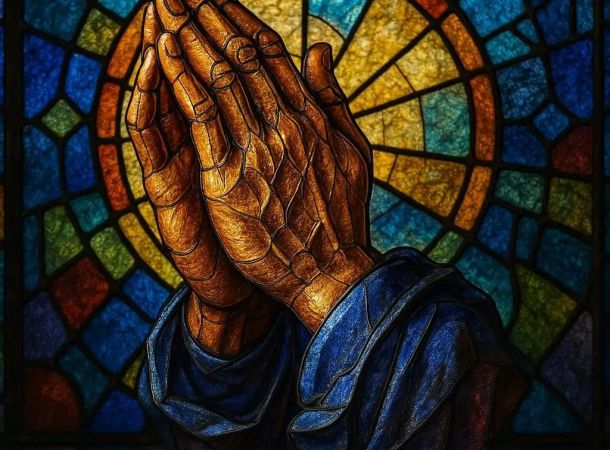Kings and Kingdoms
Devarim means ‘words’ in Hebrew. It is the name of the first Torah portion and the Book of Deuteronomy, the last Book in the Torah. I will focus on an enemy that shows up in every portion from the beginning to the honking end of the Bible, and that is kings. Kings played an essential part in the Ancient world, but rulers are still central to our ability to thrive in today’s world.
Personally, I believe when the Bible describes the Leviathan in Job 41, it points me to rulers of the nations because it talks about him living in the seas, which often symbolizes the nations in Biblical imagery. Beast kings, a term I use to describe rulers of Israel, are on dry land, something that Israel walks on when it becomes a nation. Adam could have become the beast king, or serpent, in the Garden who led his family into exile.
The next king we learn about is Nimrod, a mighty hunter before the face of God (Gn 10.9). Nimrod wanted to build a name for himself, not the Holy One, which caused a scattering, confusion, and division among his subjects (Gn 11.4). Nimrod is the father of all the kings of the nations or empire. Abraham is the father of all the God-ordained kings of Israel (Gn 17.6 & Gn 10). Two kingdoms are at play in the Bible: the kingdom of man versus the Kingdom of God.
Abimelech, a king, entered into a covenant with Abraham and Isaac after observing that God’s blessings followed them (Gn 21.27 & Gn 26.28). This covenant, a solemn agreement between parties, is a significant aspect of biblical governance and can be seen as a model for how rulers should interact with God’s people.
Joseph, a man of God, ends up inheriting half of the kingdom of Egypt under Pharaoh’s rule. This particular Pharaoh shared his dominion with Joseph, who used his position to protect and provide for God’s people. His successor did not know Joseph or God and ended up enslaving and oppressing the Hebrews, blocking them from worshipping the Holy One (Ex 5.2).
Amalek was a king who attacked Israel at its vulnerable points and for no reason. Israel was not gunning for their land, and they had done nothing to poke the bear. He just attacked to attack and gained an everlasting curse where God wars with Amalek and commands Israel to blot out the remembrance of him in every generation (Dt 25.19).
Many more kings are mentioned in the Scriptures who used different tactics to rage against the Holy One and His people. In this particular Torah portion, Moses recounts the Israelites’ dealings with some of the kings of the nations. Let’s consolidate some noticeable traits of the various kings of the nations.
They want to build an empire and a name for themselves. They kill the vulnerable; for Pharaoh and Herod, it was babies because they were afraid the babies would grow up to be a threat (Ex 1.15 & Mt 2.16). They bring famine to the land. Think about Pharaoh and Nebuchadnezzar. Did you know that anywhere from tens of millions to hundreds of millions of lives have been lost due to famine caused by communism? They desire worship and keep Israel from worshipping God (Dn 3.5 & Ex 5.1-2). Again, communist nations presently keep their subjects from worshipping the God of Abraham. The kings of the nations either walk in covenant with God’s people and allow them to live and sustain in their land, or they keep them from passing through the land peacefully. They can sometimes block them from the land that the Holy One gave them. The kings of the nations can either oppress and enslave the Hebrews or co-rule with them, like Pharaoh and Joseph.
Now, that doesn’t mean that Israel’s ruling government is good. They can also be beastly, leading the subjects into disobedience and exile from the land. So how can we, as a nation, make sure that we are walking alongside God’s people and not making enemies with the Holy One? I was a registered independent for most of my voting life, trying to vote for policies that aligned with my moral compass, mostly having to do with what I am revealing here. I am not looking for a savior in a ruler; we already have one. I do not even look for a Godly man, because I have enough understanding to know that a President or government official has most likely not arrived at that level of power through righteous living. It is not that a Godly ruler is impossible, because we see that some of the kings of the nations are righteous. I ask the following questions, and I encourage you to do the same. But remember, we are not alone in this. We have the guidance of prayer and the support of discernment. It’s our responsibility to study, discern, and choose wisely.
Does this government official believe that a Jewish person has a right to live in their land, or do their policies desire to dispossess them from their land? Would your policies oppress, segregate, or curse God’s people? Do your policies devour the vulnerable, especially children and the elderly? Defining the vulnerable is a tough task in today’s world because the majority of people redefine marginalized groups from the helpless to those who don’t feel accepted by society. The vulnerable, according to the Bible, are the powerless. Do your policies protect our constitutional right to freedom of speech and religion, or do your policies squash free speech and villainize religious groups by labeling them as racists, bigots, and dangerous monsters? Do your words and tactics bring confusion, darkness, and division like Nimrod? Do you tend to desire submission and worship from the people, or do you allow for the subjects to worship the Holy One? Do you bring prosperity or famine to the nation you rule over? Do your policies oppress, or more precisely, take any of our freedoms away, under the auspices of the ‘greater good’?
The Bible says that God ordains kings and brings them down (Rm 13.1). We know that in the end, He is sovereign. That does not mean that our choice, voice, and vote don’t play a part. We do not freely hand our freedoms over to tyrants. The Holy One asks us to pray for all authority figures and submit to authority, unless they are in direct opposition to God’s word, as exemplified by Daniel, Shadrach, Meshach, and Abednego. I encourage you to learn about the policies of your local, state, and federal governments. Their choices affect you and the next generation, shaping the world our children and grandchildren will inherit. Learn about the impact the kings of the nations have had on the Israelites from the beginning, and how rubbing shoulders with the surrounding nations affected them. Remember that sparks of fire come out of the mouth of Leviathan, telling me that they can be great orators, but their words are harmful. Look for fruit and not fluff. Judge their actions, promises kept or broken, their character, and testimony up to this point, which is hard because we have to filter through massive propaganda. To make a wise choice is not an easy task and takes intentionality and study. We should do it because it matters. My vote will always go to the person who pursues life for himself and the subjects of the land.
1 Timothy 2:1-2: Therefore, first of all, I urge that requests, prayers, intercessions, and thanksgiving be made on behalf of all people. For kings and all who are in authority—so we may live a peaceful and quiet life in all godliness and respectfulness.
Daniel 2:20-21: Daniel answered and said: “Blessed be the name of God forever and ever, for wisdom and might are His. And He changes the times and the seasons; He removes kings and raises up kings; He gives wisdom to the wise and knowledge to those who have understanding.”




Leave a Reply